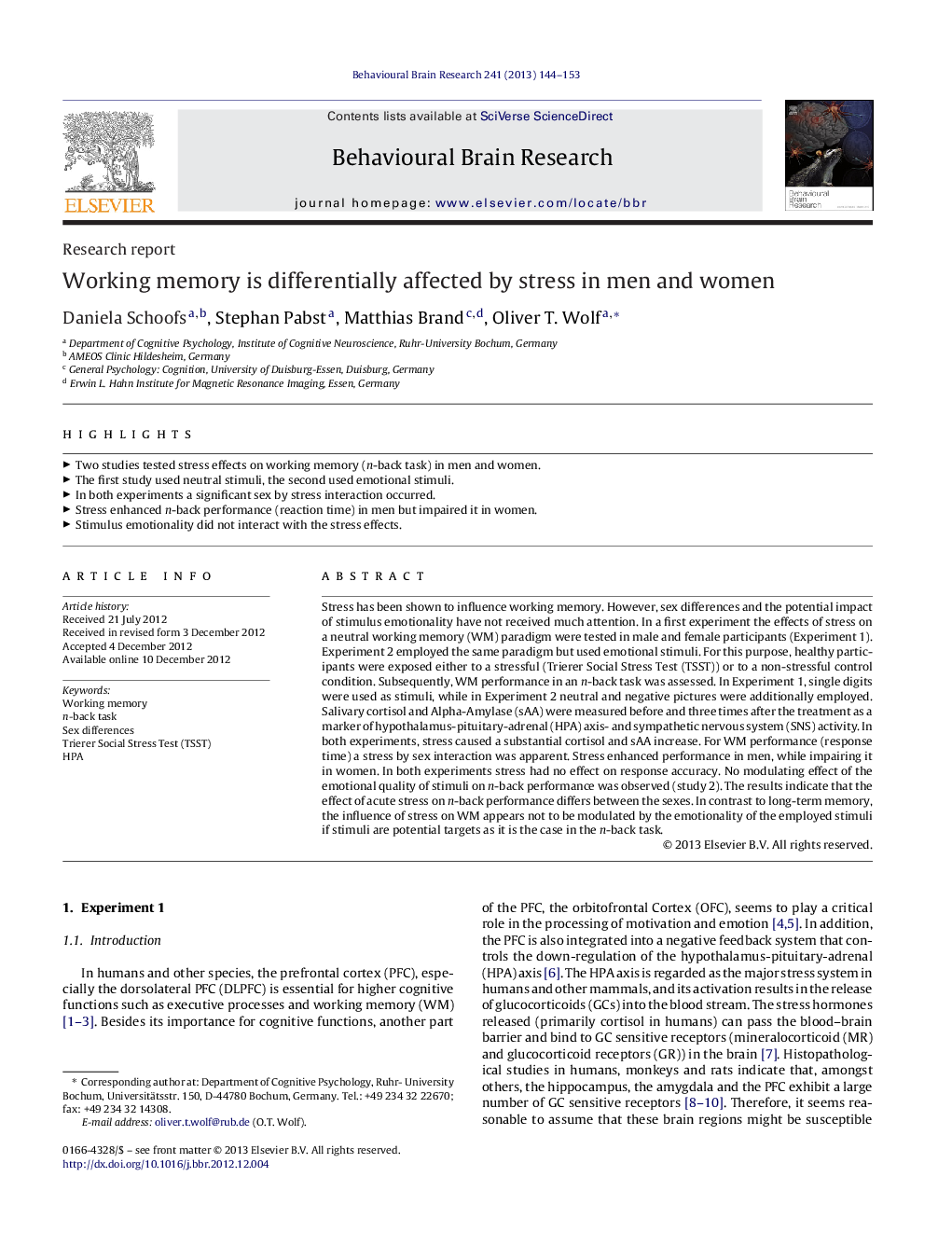| کد مقاله | کد نشریه | سال انتشار | مقاله انگلیسی | نسخه تمام متن |
|---|---|---|---|---|
| 6259198 | 1612991 | 2013 | 10 صفحه PDF | دانلود رایگان |
Stress has been shown to influence working memory. However, sex differences and the potential impact of stimulus emotionality have not received much attention. In a first experiment the effects of stress on a neutral working memory (WM) paradigm were tested in male and female participants (Experiment 1). Experiment 2 employed the same paradigm but used emotional stimuli. For this purpose, healthy participants were exposed either to a stressful (Trierer Social Stress Test (TSST)) or to a non-stressful control condition. Subsequently, WM performance in an n-back task was assessed. In Experiment 1, single digits were used as stimuli, while in Experiment 2 neutral and negative pictures were additionally employed. Salivary cortisol and Alpha-Amylase (sAA) were measured before and three times after the treatment as a marker of hypothalamus-pituitary-adrenal (HPA) axis- and sympathetic nervous system (SNS) activity. In both experiments, stress caused a substantial cortisol and sAA increase. For WM performance (response time) a stress by sex interaction was apparent. Stress enhanced performance in men, while impairing it in women. In both experiments stress had no effect on response accuracy. No modulating effect of the emotional quality of stimuli on n-back performance was observed (study 2). The results indicate that the effect of acute stress on n-back performance differs between the sexes. In contrast to long-term memory, the influence of stress on WM appears not to be modulated by the emotionality of the employed stimuli if stimuli are potential targets as it is the case in the n-back task.
⺠Two studies tested stress effects on working memory (n-back task) in men and women. ⺠The first study used neutral stimuli, the second used emotional stimuli. ⺠In both experiments a significant sex by stress interaction occurred. ⺠Stress enhanced n-back performance (reaction time) in men but impaired it in women. ⺠Stimulus emotionality did not interact with the stress effects.
Journal: Behavioural Brain Research - Volume 241, 15 March 2013, Pages 144-153
